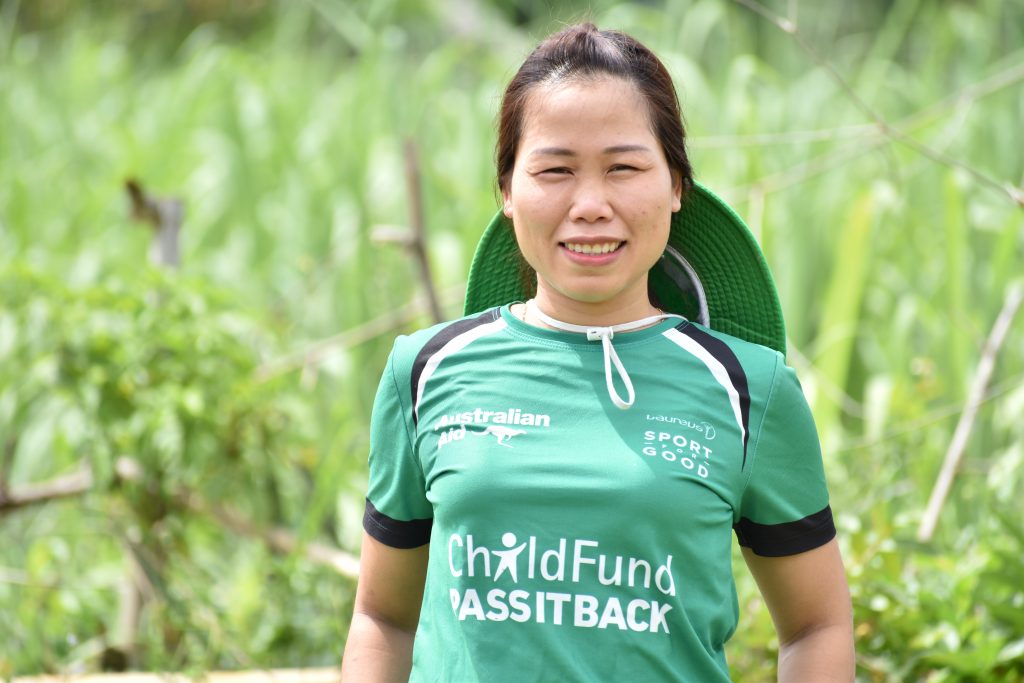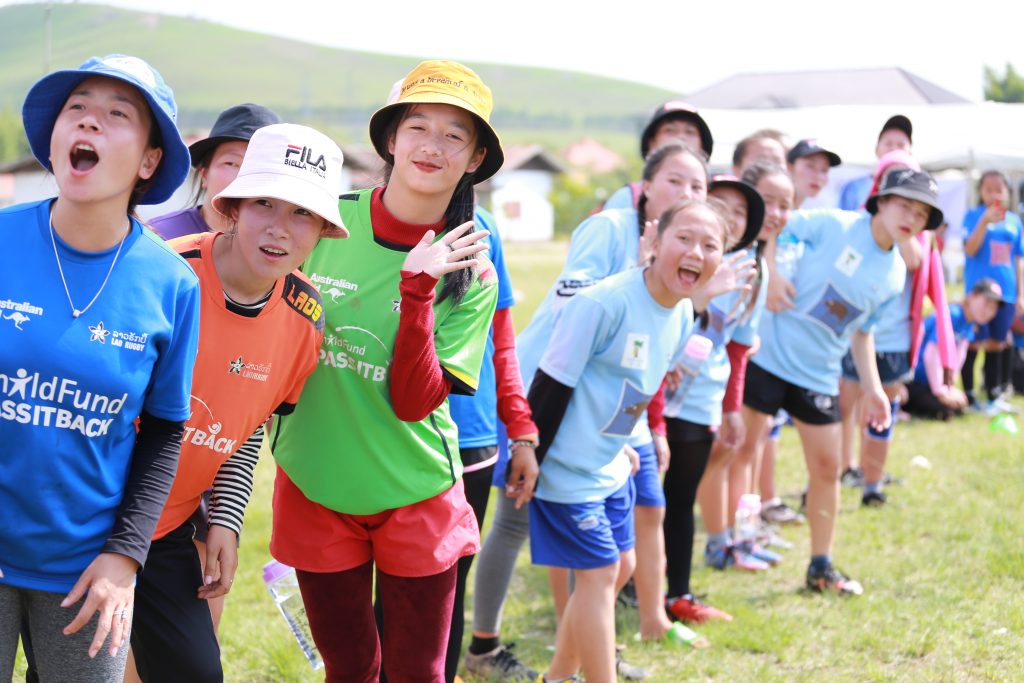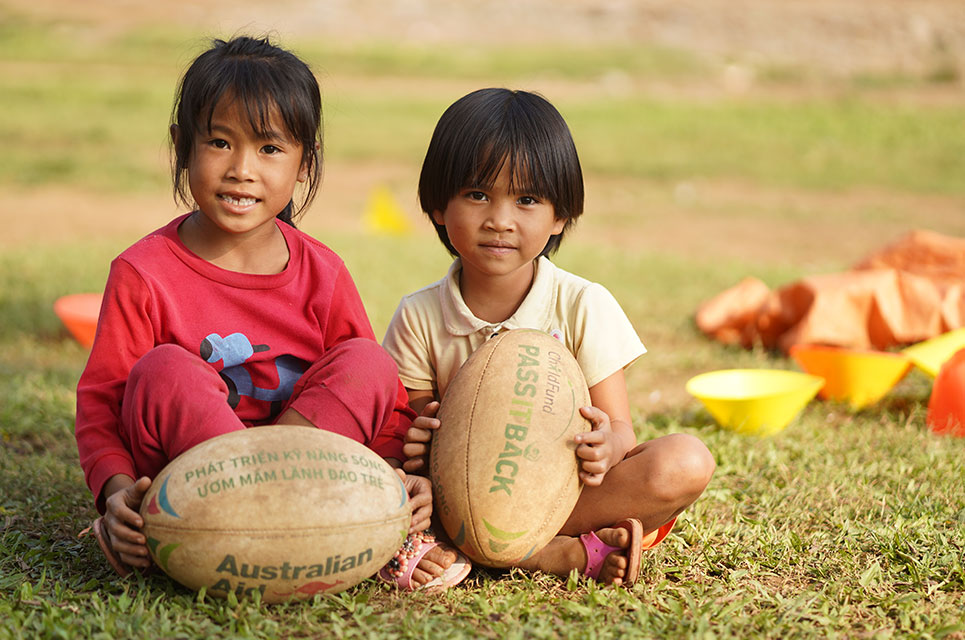Your basket is currently empty.
Asia-Pacific is home to more than 4.5 billion people. Around half are female. Despite global initiatives and government policies to promote gender equality, girls and women in the region still face significant challenges:
- In some countries, the birth of a girl is not always as welcome as the birth of a boy.
- Over 40 per cent of women in South East Asia and 60 per cent of women in the Western Pacific have experienced gender-based violence.
- Women make up less than 13% of the directors of 1,500 biggest companies, and less than 20% of national parliament seats in the region.
- Deep-rooted gender inequality continues to negatively impact the health and well-being of communities and countries.
Using sport as a platform to equip girls and young women with important leadership and life skills, as well as by engaging boys and men in learning, ChildFund Pass It Back actively challenges gender stereotypes that prevent communities from reaching their full potential.
We create an environment that encourages participation
ChildFund Pass It Back is committed to at least 50% female participation at all levels, and fosters an environment where both male and female participants have equal access to learning opportunities.
To date, 55% of players are girls and 64% of coaches are women – many of them have become leaders and role models, inspiring young people in their communities.
“I really like ChildFund Pass It Back because it focuses on gender equality and includes the participation of girls and women,” said Febriana, one of the very first female coaches in Timor-Leste, who is determined to change the future for girls and women in her country. “What I would like to change in Timor-Leste is to give opportunities for girls and women so they can develop themselves and become leaders.”
Tu, a male coach from Vietnam, also shared his thoughts: “Women and girls in Vietnam sometimes have few opportunities to play sport, but through ChildFund Pass It Back, both girls and boys can play rugby and learn life skills about gender equality and treating others without gender discrimination. I really appreciate this.”

We promote female leaders through sport
Huyen is a coach group leader, who is responsible for managing other coaches in her community. Huyen says: “Before joining the project, I was just a farmer who stayed at home to take care of children and do my family duties. I would never have had such opportunities if I hadn’t participated in this program.”
Across ChildFund Pass It Back, 17 out of 26 coach group leaders are female. Young women are given opportunities, supported and encouraged to develop and practice their leadership skills and to take leadership roles in their communities: organising competitions, leading teams to international tournaments, taking the role of trainers or assistant trainers during coach training and participating in international youth workshops.
“Before joining ChildFund Pass It Back I thought women could only stay home taking care of household chores, but the program made me change and helped me realise I can also be a leader, just like men,” says Cuong, a female coach from Vietnam, who is now managing other coaches in her commune.

I can also be a leader, just like men.
Cuong – Coach, Vietnam.
We help young people to explore and learn about gender in their communities
Understanding Gender is one module of the ChildFund Pass It Back curriculum. Learning provides young people with the knowledge, skills and attitudes to challenge negative gender roles and expectations in a respectful way. Gender equality is also a feature of the program’s other learning areas: Planning for the Future, Being Healthy, and Feeling Safe.

“Before I learned more about gender, men told me that women couldn’t do anything, that they couldn’t be a leader, that they can only be a mother and take care of the children and do the chores at home, and I believed them. This discouraged me from studying hard because I thought that even if I worked hard, I couldn’t get a job anyway and would just end up taking care of my children as people said.
“However, now I’ve learnt that these beliefs are social expectations and I don’t have to follow them,” says Larmoua, a female coach from Laos.
Khuyen, a male coach from Vietnam, adds: “I now believe there is no limit to what men and women can and can not do and that they deserve equal opportunities to do whatever they want.”

